The Saturday Read: Collision course
Inside: Lax Britannia, Starmer's vision, 20 years of Never Let Me Go, a defence of the Premier League, tariffs, St Patrick’s Day, Rupert Lowe, and the so-called vibe shift.
Good morning. Welcome to the Saturday Read, the best of the New Statesman, in print and online this week. This is Finn with Nicholas and George.
Good news everyone. There is such a thing as Starmerism after all! Maybe. Andrew Marr writes this week about how this particularly prosaic Prime Minister finally has an idea for Britain. “It won’t satisfy critics who want a vision based on socialism or religious faith” Andrew says, and there are no promises for “an eventual utopia” either. But after months of deliberately avoiding ideology, and refusing to reveal any intellectual hinterland (no favourite novel, no favourite poem, he says), Keir Starmer has found his inner statesman.
Donald Trump and European security have sharpened the leader’s thinking. Confronted by the continent’s stodgy and slow-moving politics, Starmer is inspired to fix the oversized and underpowered British state. His plans for a radical restructuring have already begun with the announcement that NHS England is set to be abolished. Promises of a more agile government are well and good, but we should not get carried away. Serious party ructions (arguments over welfare, for example) lie in wait for Starmer and his close coterie of advisers. More on that below.
As ever, thanks for reading and have a great weekend.
1—“The malaise of worklessness”
As the government finally looks to tackle “sick-note Britain” and the millions out of work, Will Dunn asks in this week’s cover slot where our labour market went wrong: “laziness, ill-health or a lack of opportunity?” NH
There is one group, however, that keeps Treasury economists awake at night: the large numbers of people who want to work but are prevented from doing so by illness. In five years the number of people out of work due to ill-health has increased by 714,000, to 2.8 million. This is a serious problem for government finances. Within five years, spending on incapacity and disability benefits is forecast to grow to more than £100bn a year. Britain will soon be spending twice as much on incapacity benefits as it spends on secondary schools.
2—“Canada’s dark reality”
Donald Trump has changed the political calculus in the country, such that the Liberals might claw their way to victory under turbo-technocrat Mark Carney in the upcoming election. But Canada is simply too intertwined with the US economy to go it alone. The New Statesman’s resident Canadian, Megan Gibson, explains. FMcR
However, the uncomfortable fact remains that Canada has spent decades building its economy around its southern neighbour: trade makes up one third of the Canadian economy and 75 per cent of its exports go to the US. The threat posed by Trump has united the country more than any other issue in recent history. The national pollster Angus Reid found that 91 per cent of Canadians want to be less reliant on the US in the future, preferring that option over repairing the US-Canada relationship. Yet shifting exports into new markets isn’t a simple endeavour: sending millions of barrels of Canada’s crude oil a day anywhere other than the US is impossible at the moment due to the lack of infrastructure, such as pipelines. Untangling the country’s fortunes from the US would require a radical remaking of the economy. That is something that Mark Carney, a technocratic centrist, is unlikely to do.
3—“Heading for chaos”
We shouldn’t deny Starmer his good few weeks. Global events have given him and the country a cause to rally around. But he should proceed with caution, Andrew warns: Labour is on a collision course. FMcR
A climate of fear? No, but a chill of self-censorship. The cabinets of Attlee, Wilson and even Blair were nothing like this.
With a big argument over public spending looming, it feels unsustainable. Rival groups of loyalist and protesting backbenchers are mobilising. The fiscal arithmetic is taking Labour towards either an unconvincing mishmash of departmental cutbacks which, for instance, makes NHS reform harder and worsens the crisis in criminal justice; or else welfare cuts that the public, as well as back-bench MPs, will be horrified by.
4—“The Hegelian treatment”
“Vibe shift” is the mot du jour – as the world tries to explain the generational changes on display in American politics right now. But is it the mot juste? Lee Siegel investigates how inadequate this term is in describing the cultural moment. NH
As it is seized upon by figures like Niall Ferguson, the phrase is more of a cudgel than an instrument of clarity. What this cant term does do, in its trivial assimilation of radical change, is provide a kind of rationale, a moral framework even, for the impending historical catastrophe the political right is fomenting. And in that sense, “vibe shift” is just another name for letting things slide.
5—“We’ve forgotten how to build”
“[Ezra] Klein’s trademark po-faced de haut en bas teacher’s tone can grate,” but Simon Kuper actually quite liked his new book, Abundance. Co-authored by NYT princeling Klein and Atlantic brainbox Derek Thompson, it lays out the conundrum of construction. The Empire State Building was built in 14 months, they say. What happened to that spirit? GM
The US used to build, fast. The Empire State Building opened on 1 May 1931, less than 14 months after construction began. But recall the famous 1932 photograph of workers on the Rockefeller Center eating their lunch perched on a steel beam dangling in the Manhattan sky: construction was quick then because there were hardly any regulations. Health and safety inspectors hadn’t been invented yet, and you could pump your pollutants into the sky or the local river.
To enjoy our latest analysis of politics, news and events, in addition to world-class literary and cultural reviews, click here to subscribe to the New Statesman. You'll enjoy all of the New Statesman's online content, ad-free podcasts and invitations to NS events.
It’s St Patrick’s Day on Monday, which makes the party this weekend. But in 2025 there is reason to be a little nervous about the big green binge.
Traditionally the Feast of St P offered a day of relief from Lenten commitments. However, Ash Wednesday came so late this year that penitent choc-o-holics have not even had two weeks to feel the burn of denial before their weekend off. It also seems, at least to me, that Lent itself has been usurped by the secular abnegation of “Dry January”. The only observer I could find in the office was resident A/V oracle Chris giving up beer – but not wine or whisky.
What’s more, we seem to be in a moment of anti-Guinness blowback. James Joyce’s “frothy freshener” flew too close to the sun last year. Pubs running out of the stuff in December prompted a vicious reckoning. The drink was mainstream. Murphy’s was a tastier stout. That weird technique of pouring it some of the way before pouring it the rest of the way was just a time-wasting marketing shtick.
Whatever the future of paschal asceticism, there’s a pleasant and sunny weekend ahead. I hope you enjoy it, or not – whichever you rather. Sláinte!
The University of Plymouth is pioneering new technologies for people in rural and isolated communities to experience and access real-world places they would not usually be able to. These services have been shown to address some of the greatest health challenges of our time. Click here to learn about the ICONIC project.
6—“Incomparably superior”
The English love to hate the Premier League – for fleecing loyal fans and being the home of some dubious money. But Mark Damazer admonishes the whingers: England doesn’t have many world-beating industries, let’s appreciate the few it does! I certainly will on Sunday, as I venture to the Emirates in fealty to Arsenal. FMcR
As a child barely able to kick a ball I plumped for Tottenham. They were very good then and I was too young to understand that this was not, very much not, a permanent state of affairs. They are now both super under-performing and apparently super expensive. But no matter – the relationship between a paying supporter and their team is often ludicrously intense, irrational and unavoidable. Bill Shankly, a great and witty Liverpool manager over 50 years ago, famously declared: “Some people think football is life and death. I assure you it’s much more serious than that.” Take it down a notch and this next one gets nearer: “Out of all the unimportant things, football is the most important,” an epigram attributed to various sophisticated foreign football managers as well as – happy thought – to Pope John Paul II (a goalkeeper in his youth).
7—“No second wind”
As he rearranges the world order, it’s easy to forget that Donald Trump still has a country to run. And Americans think he’s running it badly. When these ultra-libertarians start swinging their chainsaws at precious welfare programmes like Medicaid, Ross Barkan predicts, the Trump slump will be unstoppable. NH
A top congressional Republican recently told his members he didn’t want them to hold in-district town halls any longer because so many enraged voters are showing up. Republicans believe, stupidly, many of the complaining constituents are Democratic plants, when in reality Musk is repulsive to a growing number of Americans, and Doge is doing little but sowing chaos.
8—“A novel like no other”
He was “nothing less than stunned” by the book on its publication. Twenty years later, David Sexton returns to Kazuo Ishiguro’s masterpiece Never Let Me Go. Sexton was on the 2005 judging panel that denied it the Booker, and he still wishes he’d fought harder for it. GM
Ishiguro remembers that when he suddenly saw the entire story before him one day – “a kind of ‘eureka’ moment – though I was in the shower, not a bath” – his feelings were not just those of relief but “a kind of melancholy, mixed with something almost like queasiness”. Readers might feel a little the same. Revisiting “Never Let Me Go” once more I found it unnerving all over again, compulsively readable but at a cost of being yet again deeply unsettled by it; unsettled 20 years later not only by its concentration on mortality, but, at this point of my life, by its revelation of how childhood needs to be protected, even at the cost of lies, and by its astonishingly severe conception of how little art can ultimately help us, compared to common kindness.
9—“More harm than good”
We have a new medical problem, Hannah Barnes writes: an epidemic of overdiagnosis. Two new books argue that we are not getting sicker, we are just attributing more to sickness. One danger is that if everyone’s ill, no one is. (Apologies for the rather frightening image.) GM
The line between mental disorder and normal diversity has become increasingly blurred… With overdiagnosis, the diagnosis might be correct but “does not benefit the patient and may arguably do harm”. The problem detected is at a stage or severity that doesn’t require treatment. It applies to physical as well as mental health problems, and most often occurs in two forms: overdetection – “when new technologies and more sensitive and intensive screening programmes are used to detect earlier and milder forms of disease”; and expanded disease definitions – over time, people once considered healthy are drawn into the group.
10—“An a-strategic leader”
This is a pretty comprehensive sweep of Trump’s geopolitical strategy. Or perhaps “strategy” implies something too deliberate. Better to think of him as a politician guided by a series of quite consistent “core biases”, one expert tells Katie Stallard. FMcR
For the first time, long-standing American allies are also having to contemplate the previously unimaginable question of whether they could even end up having to defend themselves against the US. When I asked Eric Edelman [ex-US ambassador to Finland and Turkey] whether it was conceivable, given Trump’s recent remarks, that the US could use military force to attack Greenland or Canada, he paused. “I don’t think so,” he said. “But the fact that you have to put the question at all, and that I have to hesitate before answering, already tells you how far we have strayed into terra incognita.”
George’s Best of the Rest
Daniel Trilling: Labour’s immigration policy
Tom Hazeldine: Guns and foodbanks
Robert Shrimsley: The Trump backlash offers Starmer a mainstream moment
Isaac Chotiner: Why John Mearsheimer thinks Trump is right on Ukraine
Megan Garber: Reality TV levels up
Emmett Rensin: What can memoirs of madness accomplish?
Dan Hofstadter: Van Gogh is a legend
Laura Miller: The wunderkind novel two decades on
King pays tribute to Bob Marley as he shares hot playlist. Charles’s daughter-in-law has also been “jammin”…
And with that…
Do you know who Rupert Lowe is? The arched, machinating eyebrows, the rosy cheekbones, the unfortunately haughty manner? You’re in good company if not: 86 per cent of the public haven’t a clue, and neither do, more embarrassingly, seven in ten Reform voters, according to the pollsters at JLP. We know the Saturday Readers have doubtless been enjoying from afar the uncivil war that has beset Reform. But, for the uninformed: Lowe, the MP for Great Yarmouth, was ejected from Farage’s party over bullying accusations and then for allegedly making several “verbal threats”, which he denied, against party chairman Zia Yusuf.
So Lowe is far from a mainstream figure. But he has a small and dedicated network: Britain’s online right, for example, has rallied to his side; some have changed their Twitter avatars to read “We’re with Lowe”, beneath a crossed-out image of Yusuf.
He is the most coherent spokesman of the radical anti-immigration fringe and has a permanent, captive audience because of this. You might think of it as ultra-Thatcherism pepped up with 21st-century conspiracy theories. In September, I wrote about the speech Lowe gave to Reform’s party conference: the “experimental” Covid vaccine, the World Economic Forum and the Bilderberg Group all got a mention. Confident in flirting with these ideas, even outside Reform Lowe will continue to find willing listeners, particularly on the American right. Elon Musk is reportedly considering backing a Lowe-led splinter party.
The row between Lowe and his former colleagues will rumble on; judging by previous Farage feuds, expect libel writs and ruthless character assassination. But the network organising around Lowe isn’t going anywhere, and is a harbinger for the broader direction of the British right.
The New Statesman is home to the finest writing on politics, culture and ideas. To stay up to date, subscribe using the link above.
— Finn, Nicholas and George.


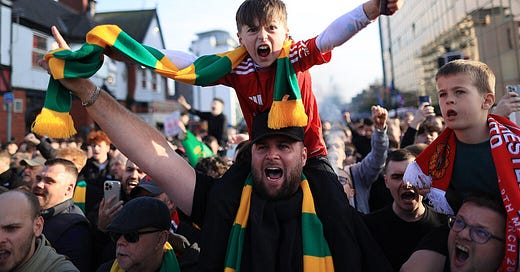


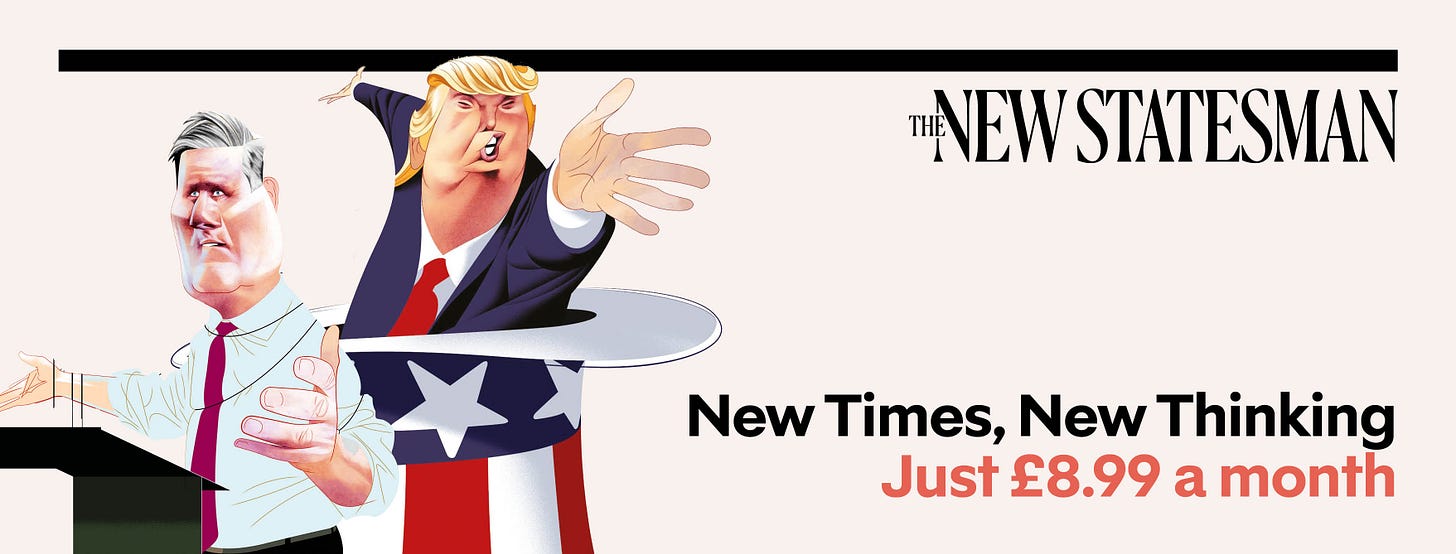

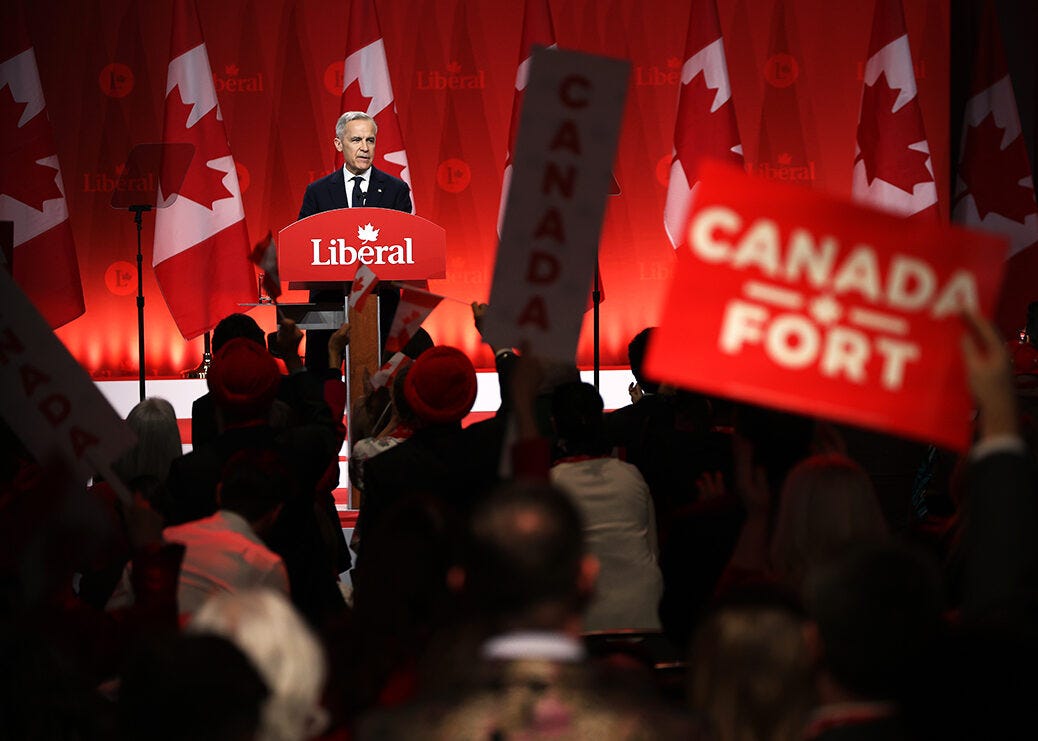
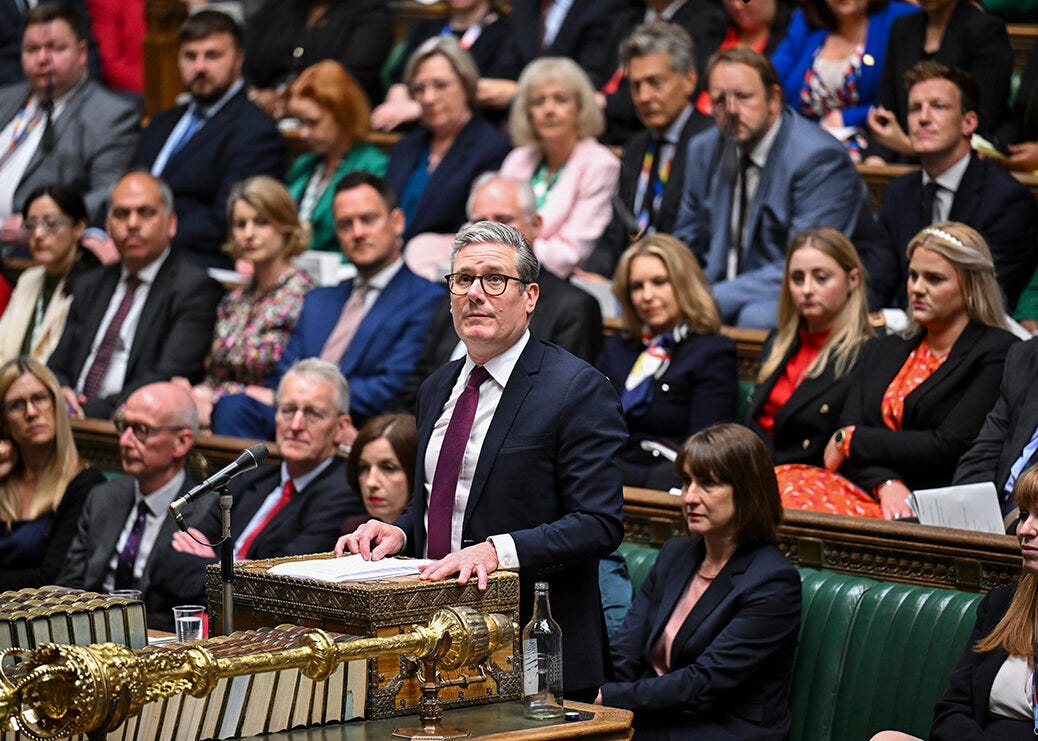
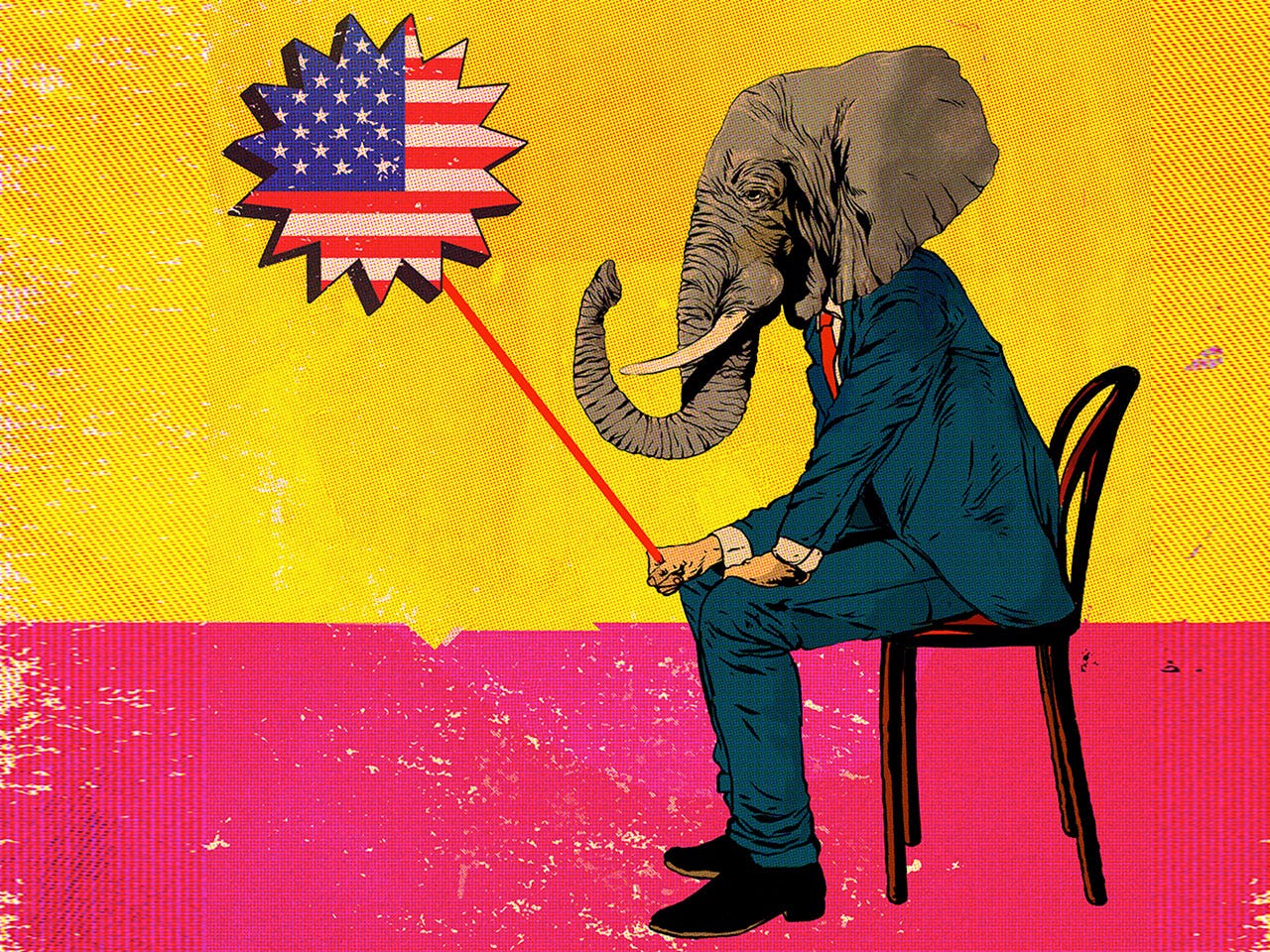





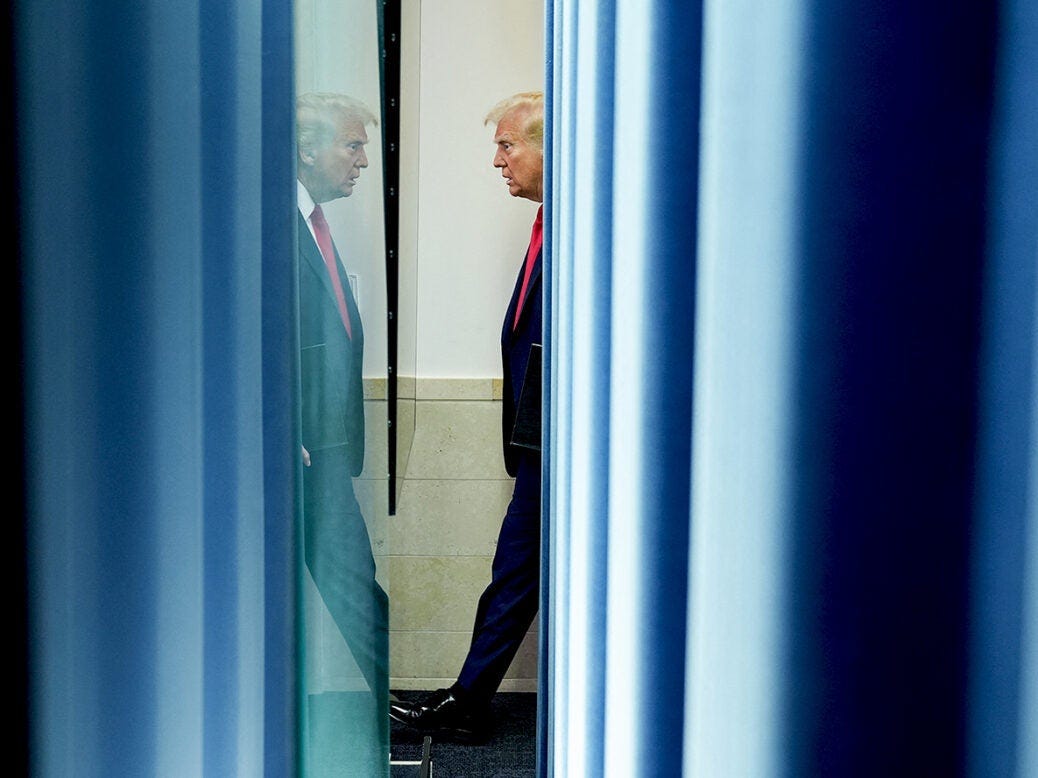
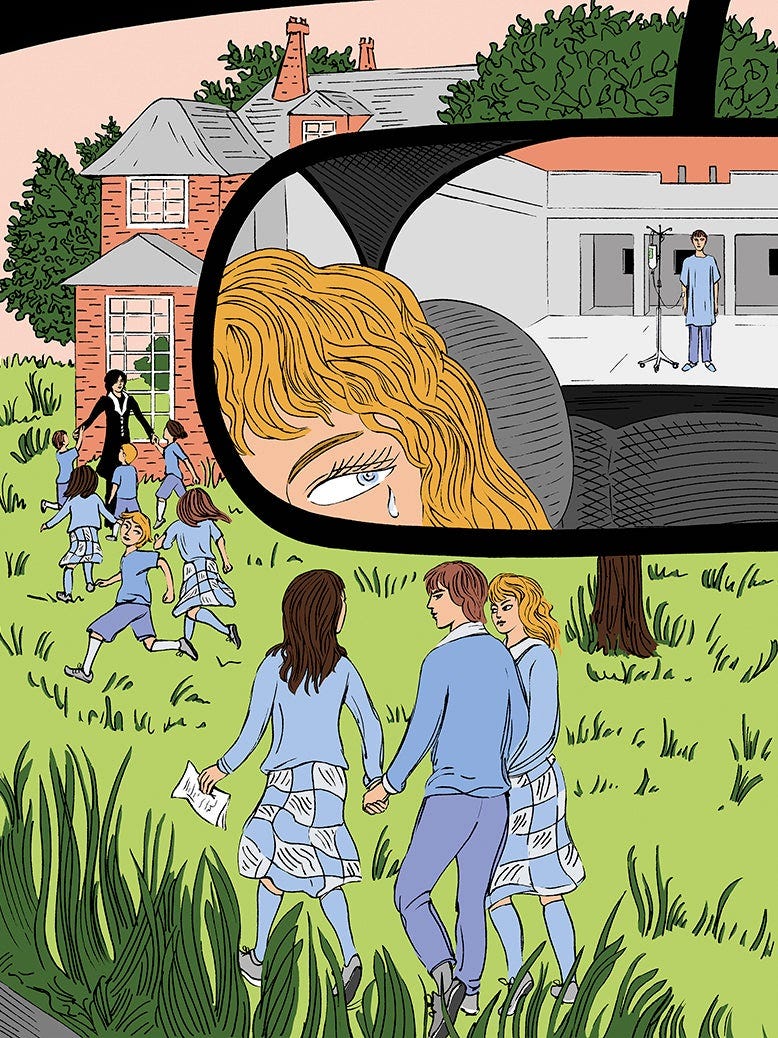
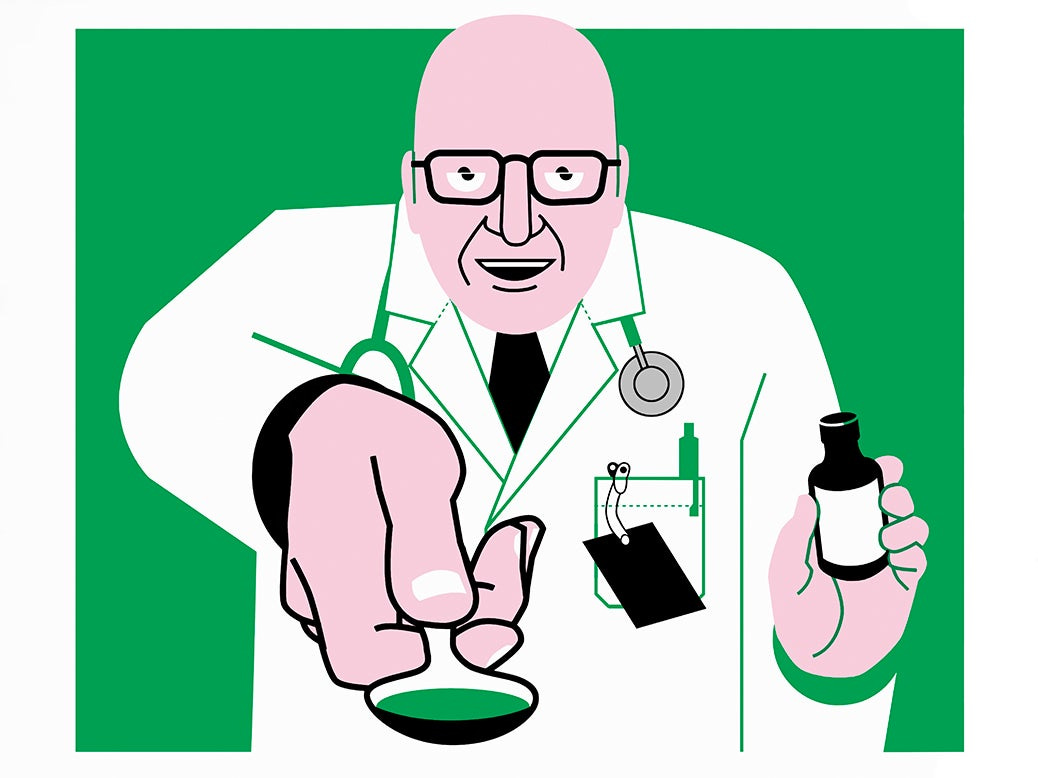


This was a compelling read! The idea of being on a 'collision course'—whether in life, relationships, or society—really makes you think about the forces shaping our paths. Always appreciate the thought-provoking insights!